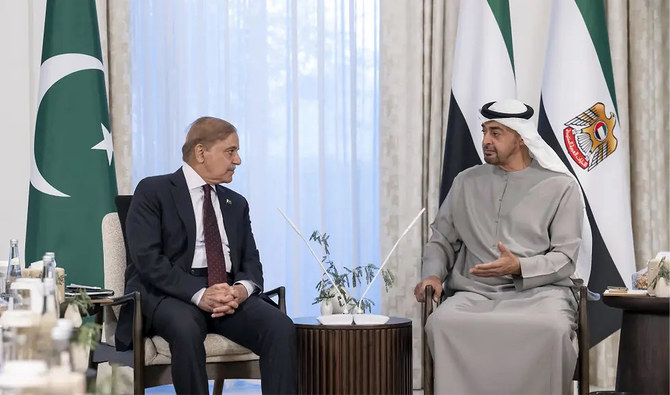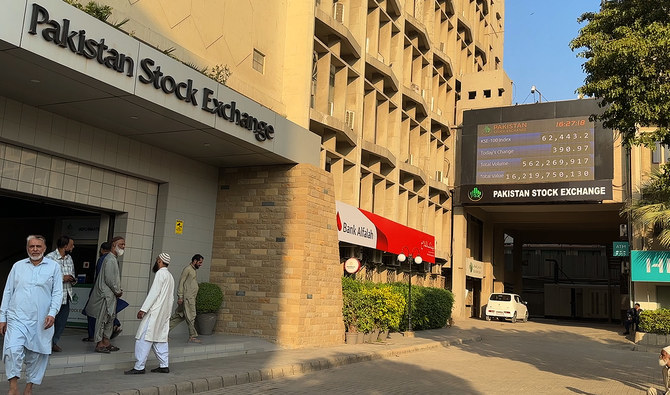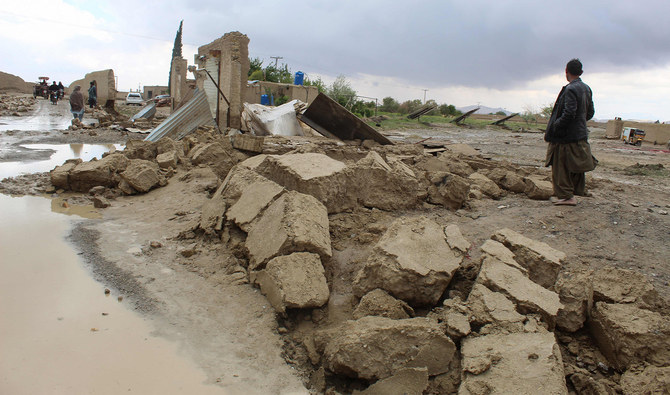ISLAMABAD: Legal experts in Pakistan on Wednesday ruled out any immediate political implications for the new federal and Punjab governments after the Supreme Court issued a verdict on a presidential reference, saying that votes of dissident lawmakers would not be counted in case of defection from their respective political parties.
Last month, an opposition alliance succeeded in toppling Imran Khan’s Pakistan Tehreek-e-Insaf (PTI) administration after moving a no-confidence motion in the National Assembly, making the former prime minister’s key coalition partners and over two dozen PTI lawmakers abandon him.
The opposition candidate, Shehbaz Sharif, became the new premier without requiring votes of dissident PTI legislators. However, his son, Hamza Shehbaz, had to rely on votes of 25 PTI dissident lawmakers for his election as Punjab chief minister.
President Dr. Arif Alvi, a close aide of ex-PM Khan, filed a reference in the Supreme Court in March, seeking interpretation of Article 63-A which sets down rules for the disqualification of lawmakers in the case of defection and violation of party policy. The top court said in its judgment on Tuesday the vote of any member of a parliamentary party in a house that is cast contrary to any direction issued by the party “cannot be counted and must be disregarded.”
Asked about its implication for the election of the prime minister and Punjab chief minister, Muhammad Ahsan Bhoon, president of the Supreme Court Bar Association, said the judgment would not have any immediate repercussions for the federal and Punjab governments since it would only be applicable to such matters in the future.
“The elections of prime minister and chief minister Punjab are now past and closed transactions,” he told Arab News.
Bhoon said another round of election for chief minister Punjab could be held if the Election Commission of Pakistan decided to de-seat the 25 PTI legislators who voted for Hamza Shehbaz by going against their party policy.
“If the Punjab governor asks the chief minister to take a vote of confidence, then obviously another round of election will be held and a candidate who gets majority vote will be declared the chief minister,” he said.
Barrister Ahmed Pansota said the Supreme Court judgment was binding, but there was a confusion if its application would be done retrospectively.
“We believe the judges will state clearly in the detailed verdict if its application is retrospective,” he told Arab News.
Pansota ruled out any immediate implication of the judgment for federal government where Shehbaz Sharif was elected prime minister by taking votes of legislators belonging to PTI’s allied parties.
“The fate of chief minister Punjab Hamza Shehbaz may be on the line as he was elected through votes of PTI dissidents,” he said, adding the situation would become clear after the election commission’s verdict in the next couple of days.
“One thing is for sure that this is an unending constitutional crisis, and ultimately a fresh election will be called to get out of it,” he said.
Irfan Qadir, a former attorney-general of Pakistan, also ruled out any immediate political implications for the federal and Punjab governments, saying it was a “controversial opinion” of the Supreme Court on the presidential reference which would not have much legal significance.
“Even if the election commission de-seats PTI dissidents, the matter will then again go to the supreme court for adjudication,” he told Arab News.
“The number game in national and Punjab assemblies is a totally different thing and whoever commands majority will be elected prime minister and chief minister,” he said.
Qadir said it was also not clear at the moment if the court’s opinion was binding which needed to be implemented in letter and spirit. “There are so many ambiguities in this opinion which need to be sorted out before its implementation,” he added.
Other legal experts were also critical of the verdict, saying that it raised plenty of questions.
“SC [Supreme Court] interpretation means even in oppressive constitutional amendments like the 21st amendment establishing military courts, MNAs [Members of the National Assembly] will be bound to vote in their [party’s] favor or resign from their seats,” said Reema Omer in a string of Twitter posts. “How is such party dictatorship a victory for parliamentary democracy?”
Calling the apex court’s majority opinion “legally unsound” in her opinion, she maintained the text of Article 63-A was clear.
“Parliament, rightly or wrongly, did not say [the dissident lawmakers’] votes will be discarded,” Omer pointed out. “SC cannot re-write the Constitution.”
















